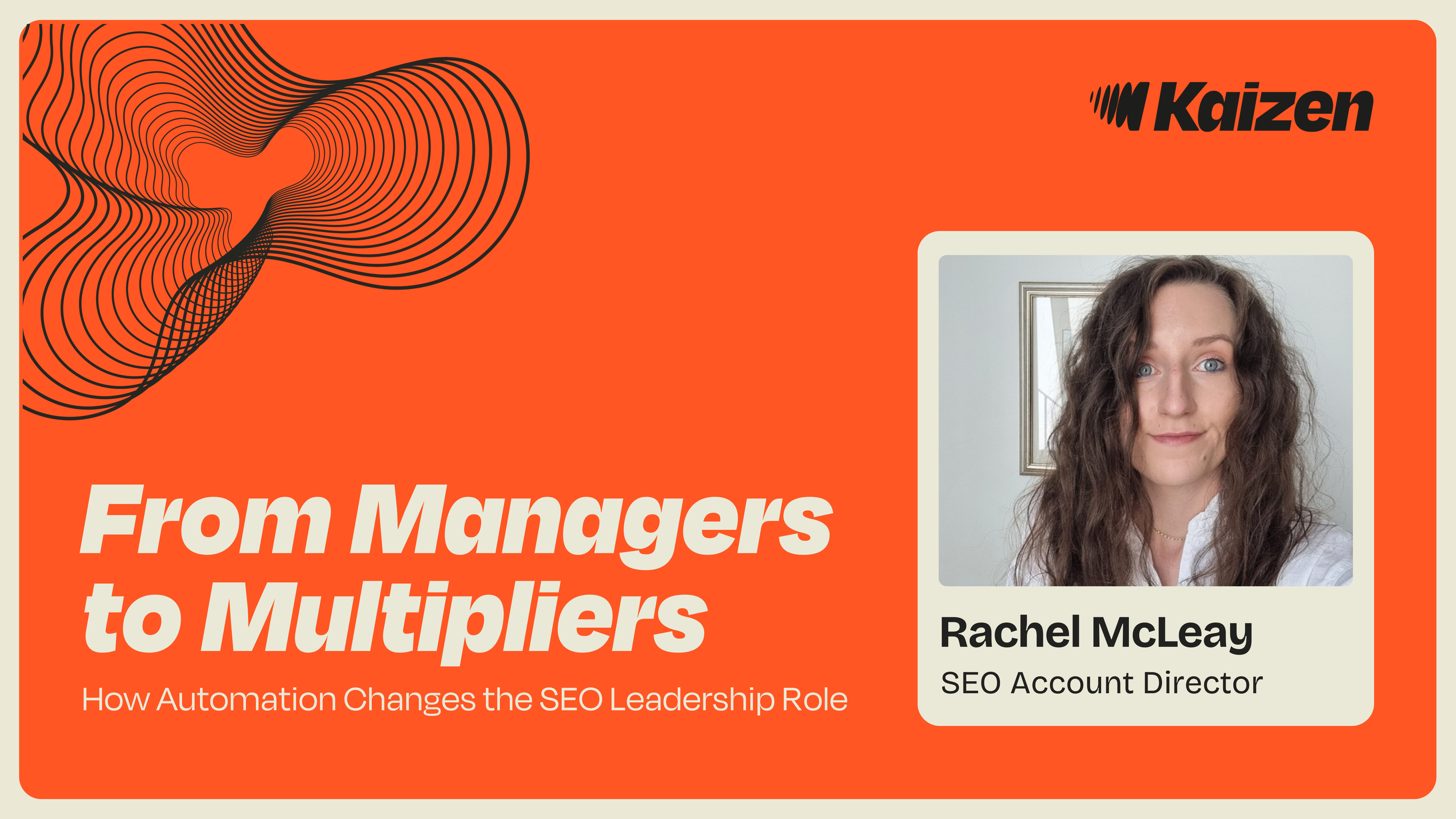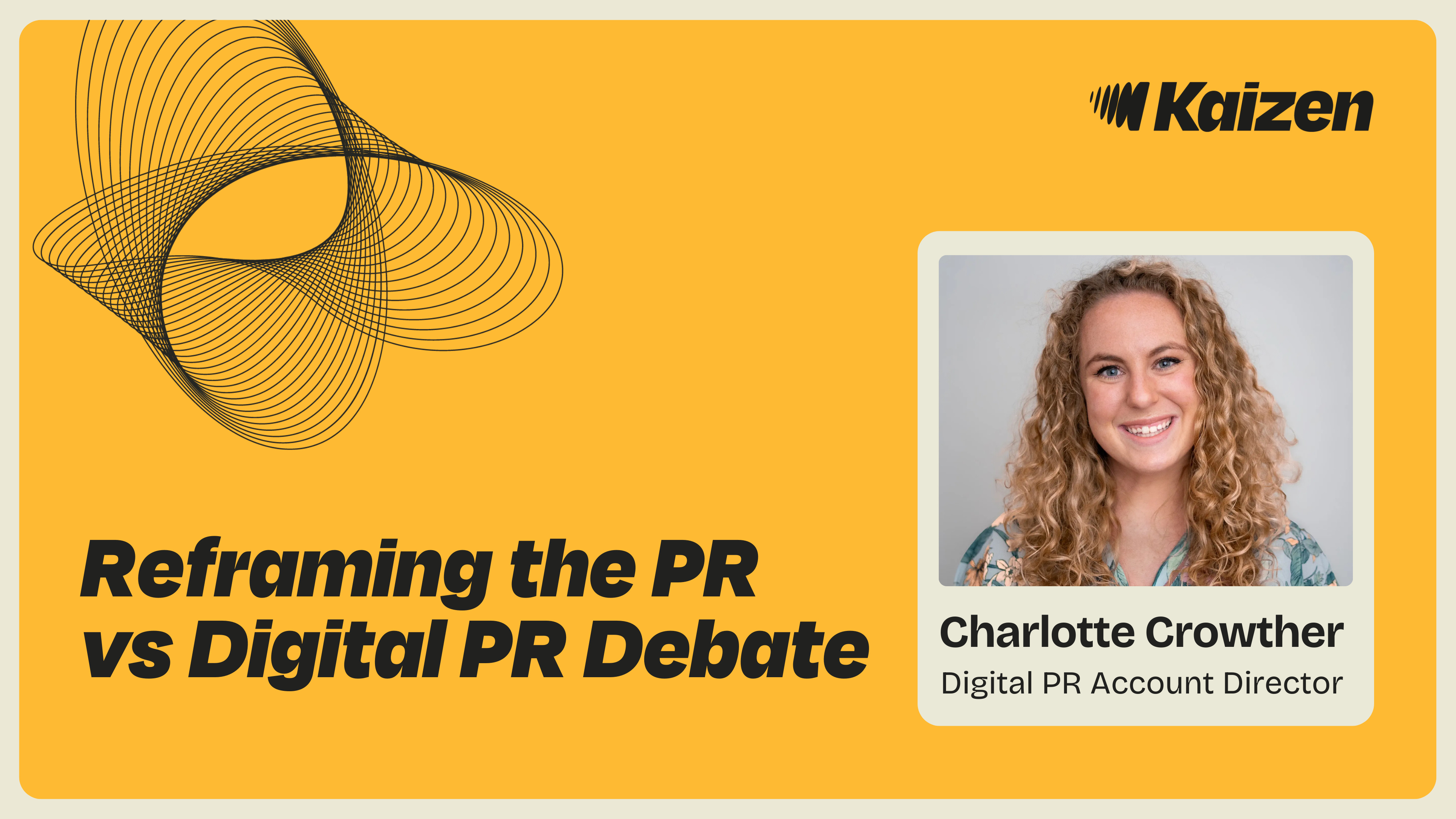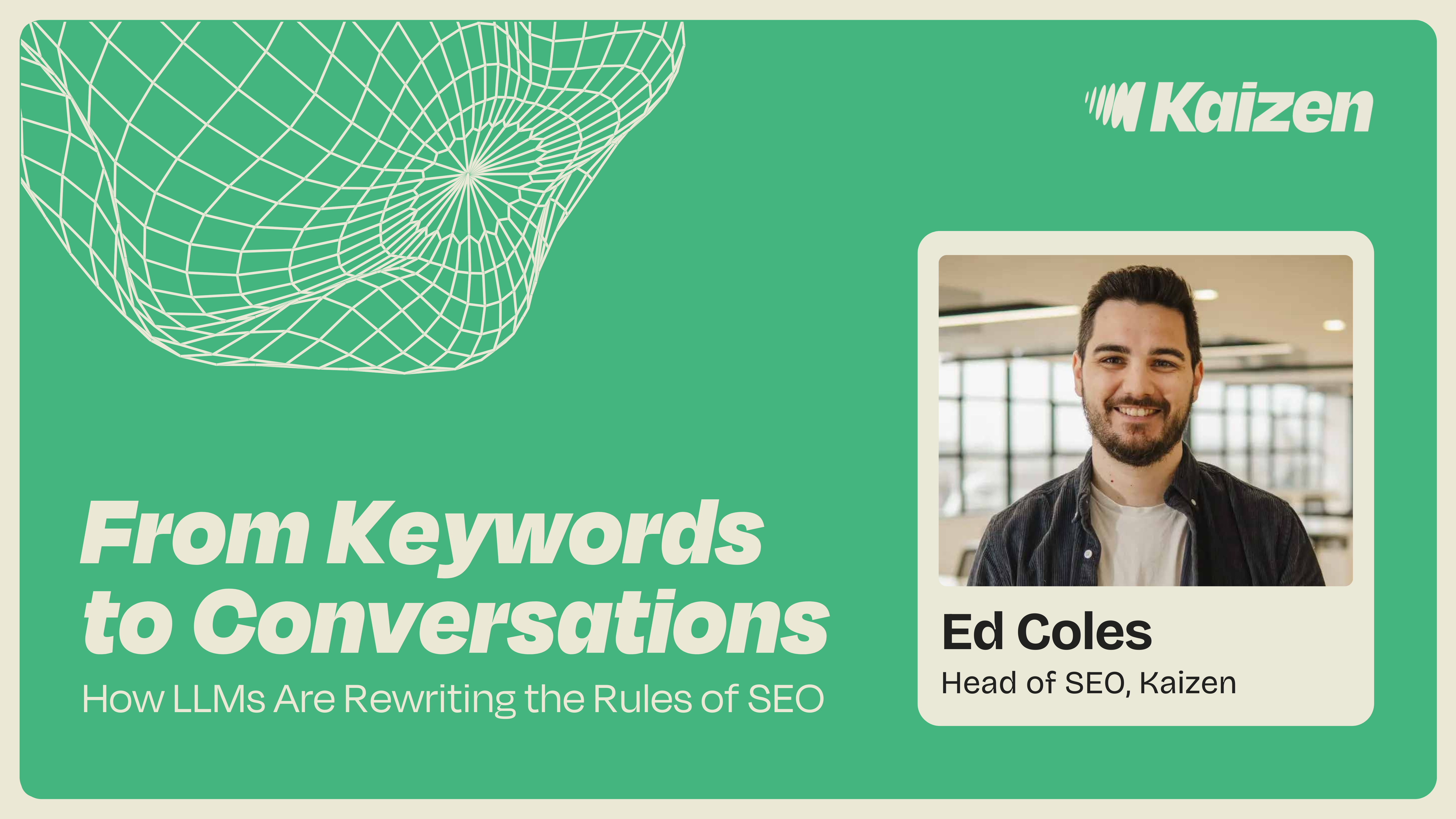‘How Google’s E-A-T Affects eCommerce’: New Kaizen Industry Report and Summer SEO Roundtable
Since the pandemic began last year, eCommerce has soared in popularity and has seen record-breaking growth year on year. According to IMRG Capgemini Online Retail Results for January, UK online sales grew 74% year-on-year in January 2021 as the nation prepared for its third lockdown. Interestingly, retailers in health & beauty, fashion, electrical and home […]

Since the pandemic began last year, eCommerce has soared in popularity and has seen record-breaking growth year on year. According to IMRG Capgemini Online Retail Results for January, UK online sales grew 74% year-on-year in January 2021 as the nation prepared for its third lockdown.
Interestingly, retailers in health & beauty, fashion, electrical and home saw increased sales as more people stayed at home and invested in personal and home improvement. With this rising popularity, many new brands took the opportunity to leverage gains over larger, recognizable brands by investing in SEO and digital marketing to improve their search engine rankings and visibility to consumers.
In a bid to highlight and understand how some brands are benefiting from investment in these channels, Kaizen have developed an industry report detailing how Google’s signals for Expertise, Authority, Trust (E-A-T) can impact a site’s ranking performance. Our hypothesis is that brands that have adapted their eCommerce site to meet Google’s quality standards of E-A-T do ranking better.
We have taken the top 1,000 rated eCommerce sites as rated by Crunchbase to form the basis of our analysis, focusing on industries such as fashion, retail, banking, financial services, technology and many more. The industry report has provided us with insight into how these standards are met for both onsite and offsite performance and which brands are doing it well.
To share our findings, we’ll be hosting a Virtual Roundtable on Thursday 22nd July to discuss how brands are implementing E-A-T into their SEO strategies and the impact it has had on their performance in the eCommerce space. Hosted by myself and Nathan Abbott, we’ll be joined by Tiffany Bushell, SEO Manager at LEGO, to discover how one of the world’s most successful brands have approached SEO as well as her thoughts on the findings.
The virtual roundtable will start at 10am, and allow an opportunity for senior eCommerce marketers and SEOs to connect and learn from each other, as well as present any questions to our team at Kaizen and to Tiffany.
Here are some key takeaways from the industry report:
Onsite Takeaways:
- More words, less problems – Keyword-rich pages are bringing in the most traffic across ecommerce sites, with top domains averaging 1,000+ a page. It’s important to stay relevant and informative with what is placed on pages, so while you don’t want to overwhelm users, it does appear that more is more.
- Divide and conquer – Headings and paragraph sections help to guide the reader, and indeed Google. Splitting up the components of a page is paying dividends for online retailers, with the best performers boasting nearly double the number of H2s and H3s. Likewise, in terms of paragraphs, it appears that on average, the top sites have nearly twice as many as the sites with lesser traffic.
- Give them the answer – We can see that by responding to the questions that your customers are searching for, and you’ll be rewarded with more traffic. Markup and visible FAQ sections are far more prevalent on high-traffic e-commerce domains, so their inclusion in your strategy is fundamental.
Offsite Takeaways:
- Authority is everything – Your offsite ‘authoritativeness’ can be adjudicated through many third-party metrics, and you must use these scores to benchmark your activity. A high domain rating is not the reason you are getting more traffic, but if you have a good score you are more likely to be getting more visitors to your site. To determine whether your offsite strategy is working towards hitting the principles of Google’s E-A-T, benchmark the DR of your domain and URL rating any target pages to better understand any improvements.
- Be someone you can trust – eCommerce sites with high trust flow are enjoying more traffic. Before engaging with link building and digital PR, research the most trusted news publications to determine the sort of content you need to have to achieve backlinks from them.
- Keep it topical – Ecommerce pages with links that are topically relevant to ‘shopping’ are getting more traffic. You can use Majestic’s ‘topical trust flow’ scores to determine sector-relevant publications where you should be getting links.
You can download the new industry report here.
If you’d like to find out more about our Virtual Roundtable on 22nd July, please don’t hesitate to email me at sean.guy@kaizen.co.uk.

 Search
Search PR
PR AI Visibility
AI Visibility Social
Social


















